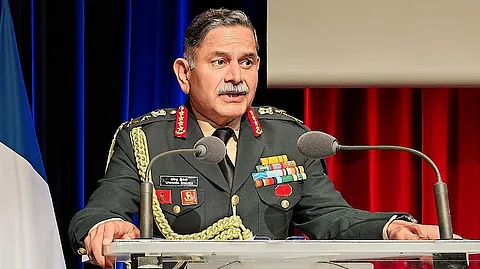

Operation Sindoor was unlike any conventional mission, with the Army navigating an unpredictable battlefield that Chief of Army Staff (COAS) General Upendra Dwivedi likened to a game of chess. Despite the uncertainty, India delivered a decisive checkmate to Pakistan, he said, while slamming Islamabad’s attempt to project itself as the victor through narrative manipulation.
“In Operation Sindoor, we played chess… We didn’t know the enemy’s next move, and they didn’t know ours. That’s the greyzone—just short of a conventional operation,” Dwivedi told an audience at IIT Madras. “Somewhere we were giving them the checkmate, and somewhere going in for the kill—at the risk of losing our own. But that’s what life is all about.”
The anti-terror operation was launched on May 7 in retaliation for the Pahalgam terror attack, in which Pakistan-based militants killed 26 civilians in Jammu & Kashmir. According to Dwivedi, the campaign was driven by political will and strategic clarity at the highest levels.
“On April 23, we sat down. For the first time, Defence Minister Rajnath Singh said, ‘Enough is enough.’ All three service chiefs agreed something had to be done. The government gave us a free hand—that kind of confidence and clarity was unprecedented,” he said.
Chief
also highlighted the unifying effect of naming the mission: “A small name like Op Sindoor connected the entire nation. That’s why people kept asking, ‘Why have you stopped?’ That question has now been answered.”
The operation involved precision air and missile strikes on nine terrorist camps and infrastructure sites in Pakistan and Pakistan-occupied Kashmir. While India maintained the strikes were focused and non-escalatory, Pakistan responded with drone and missile attacks, neutralised by India’s air defence systems.